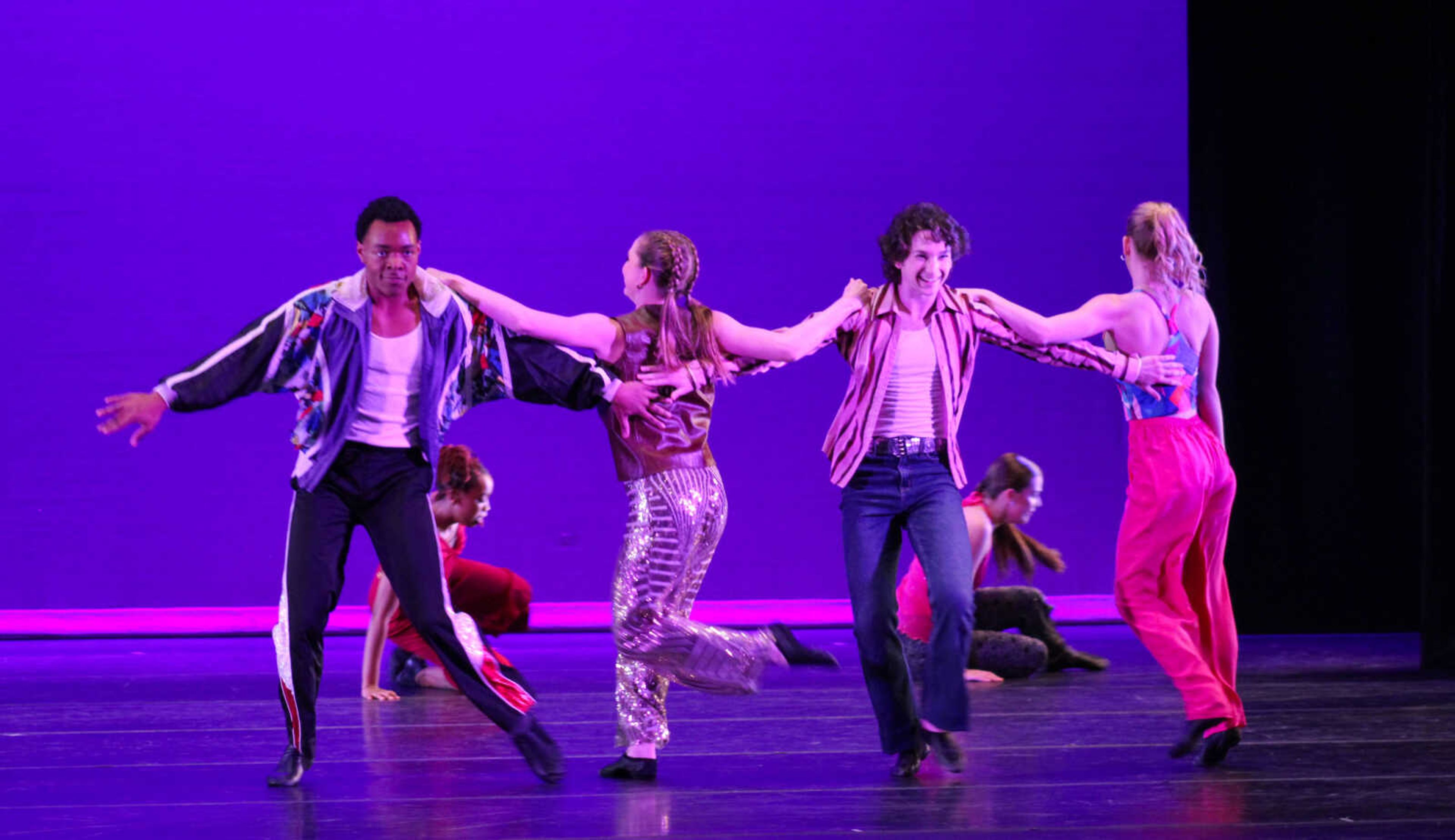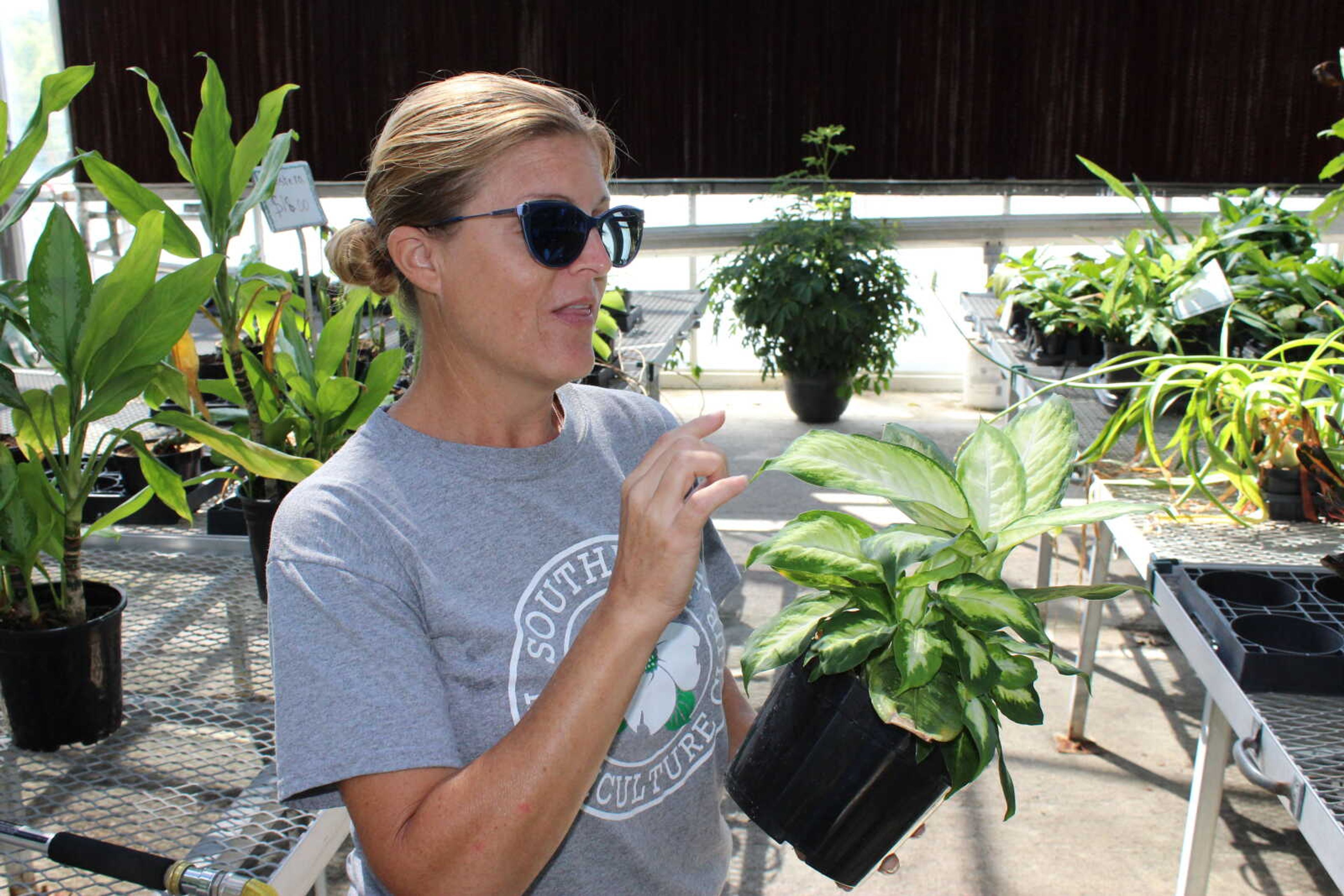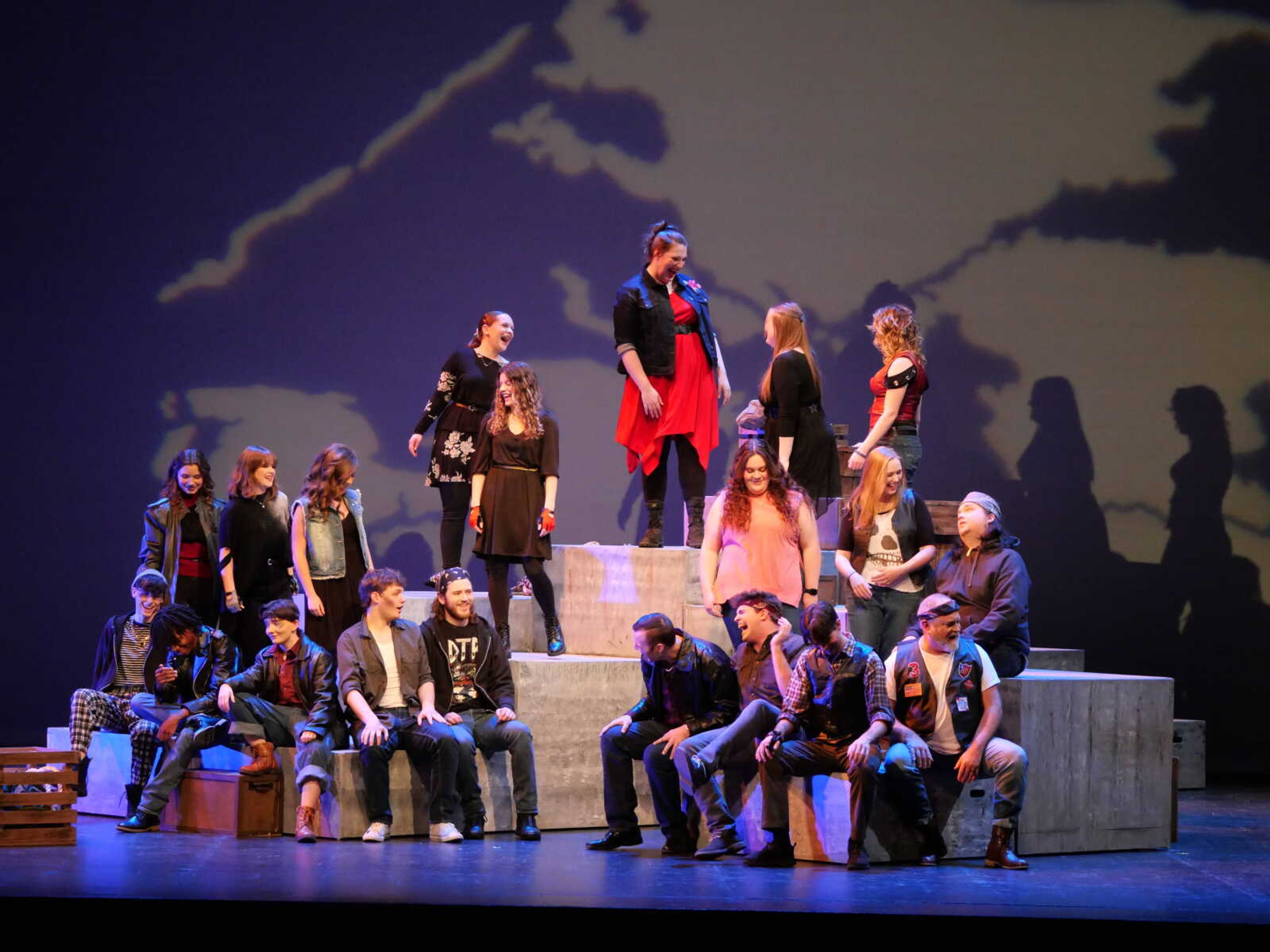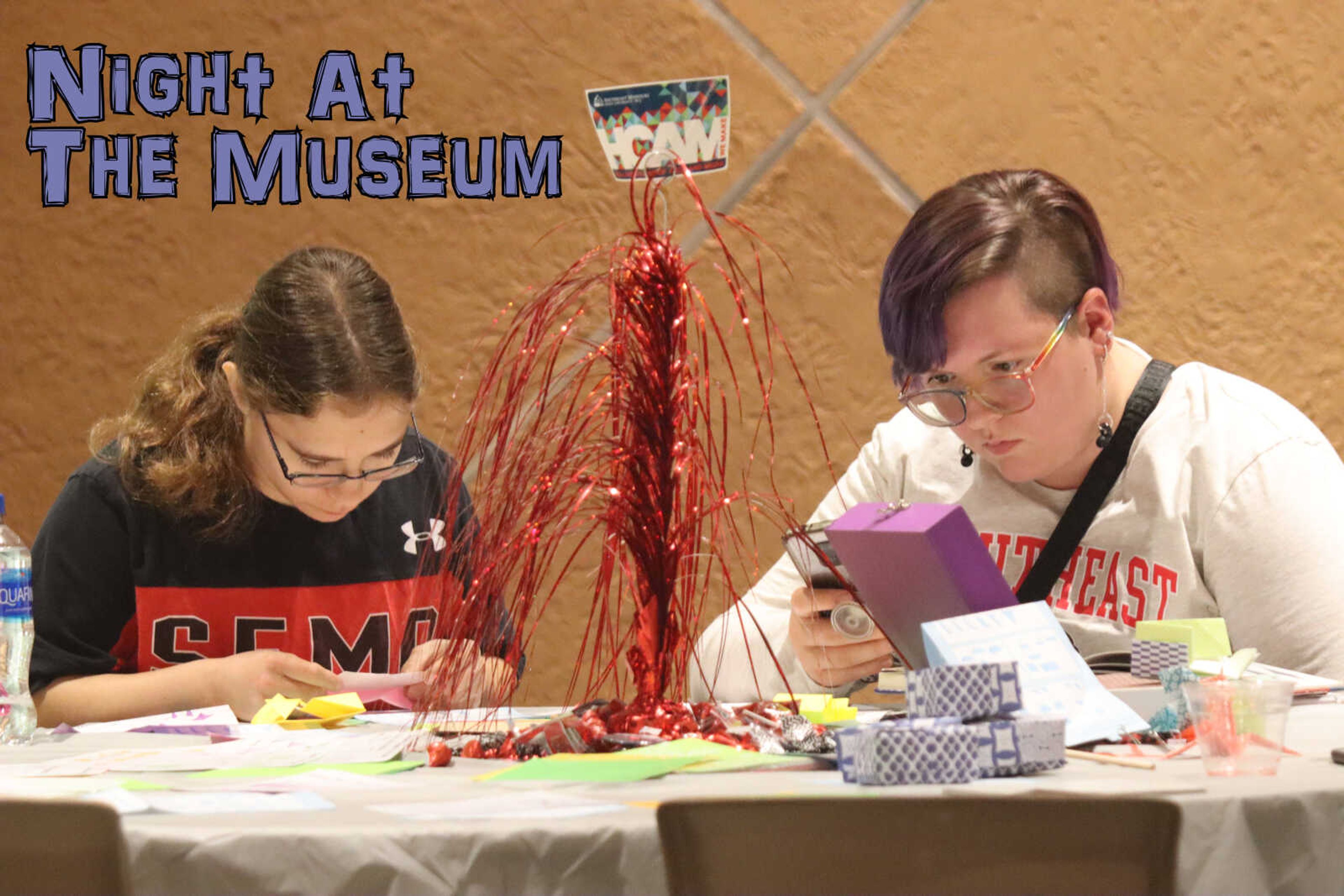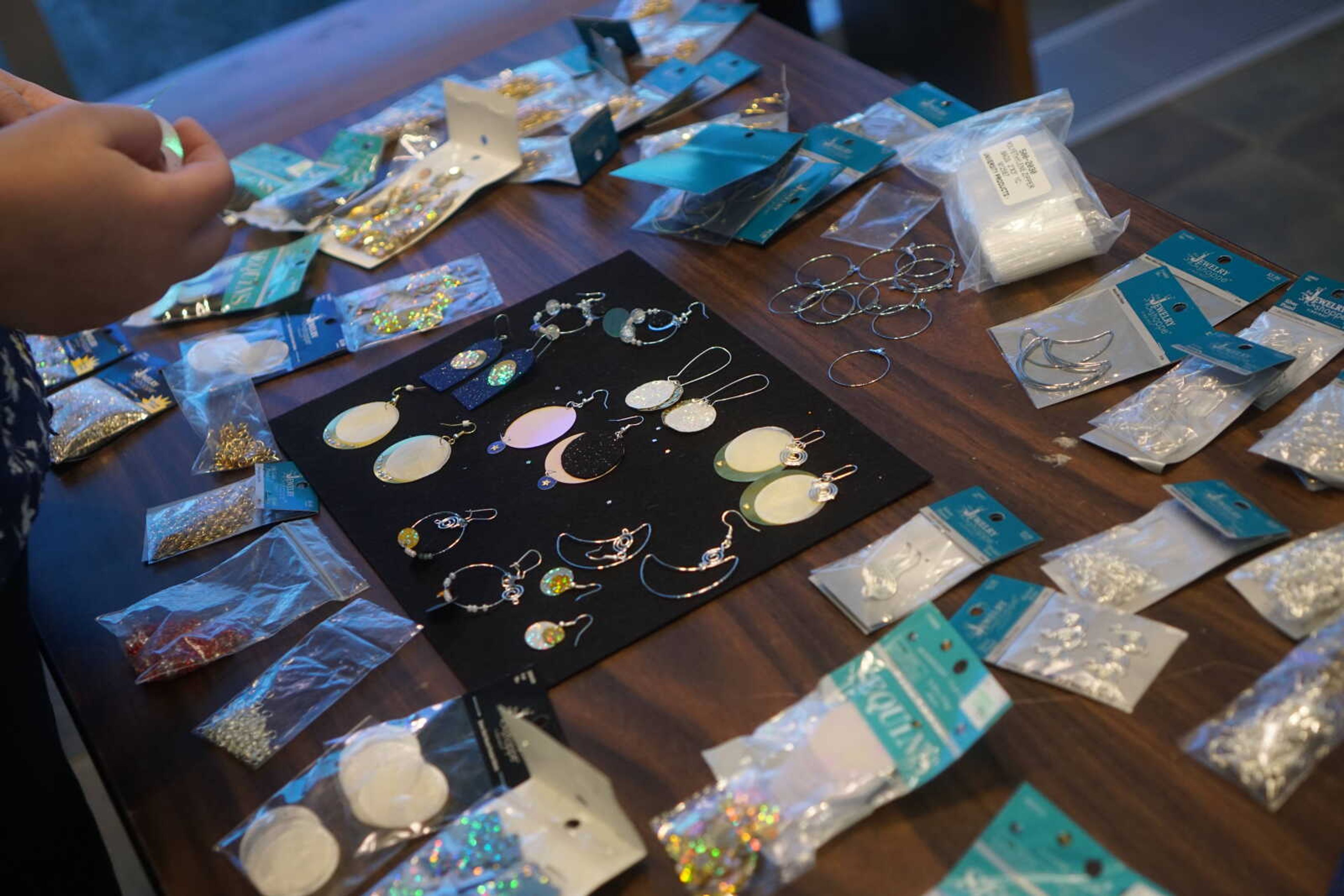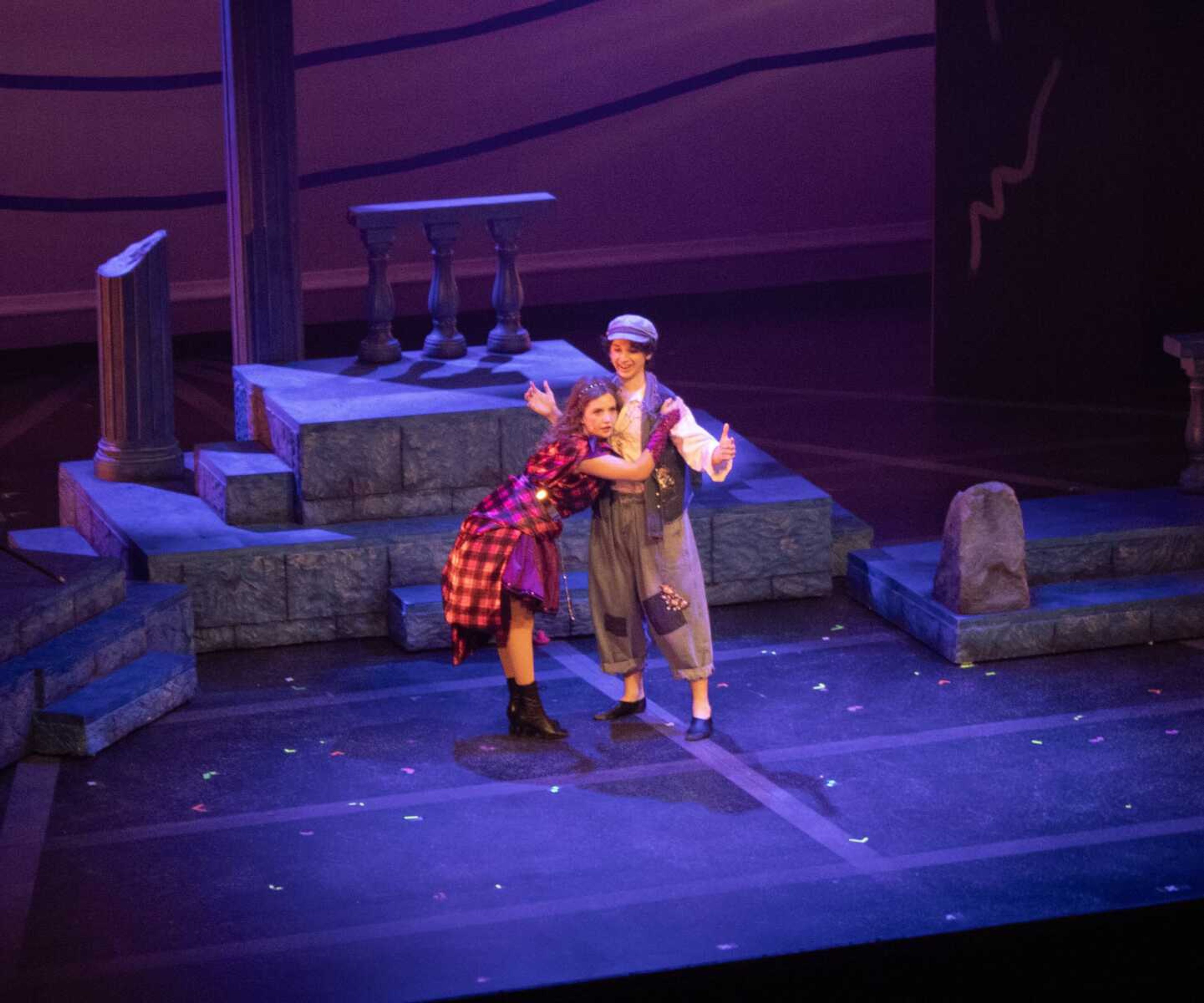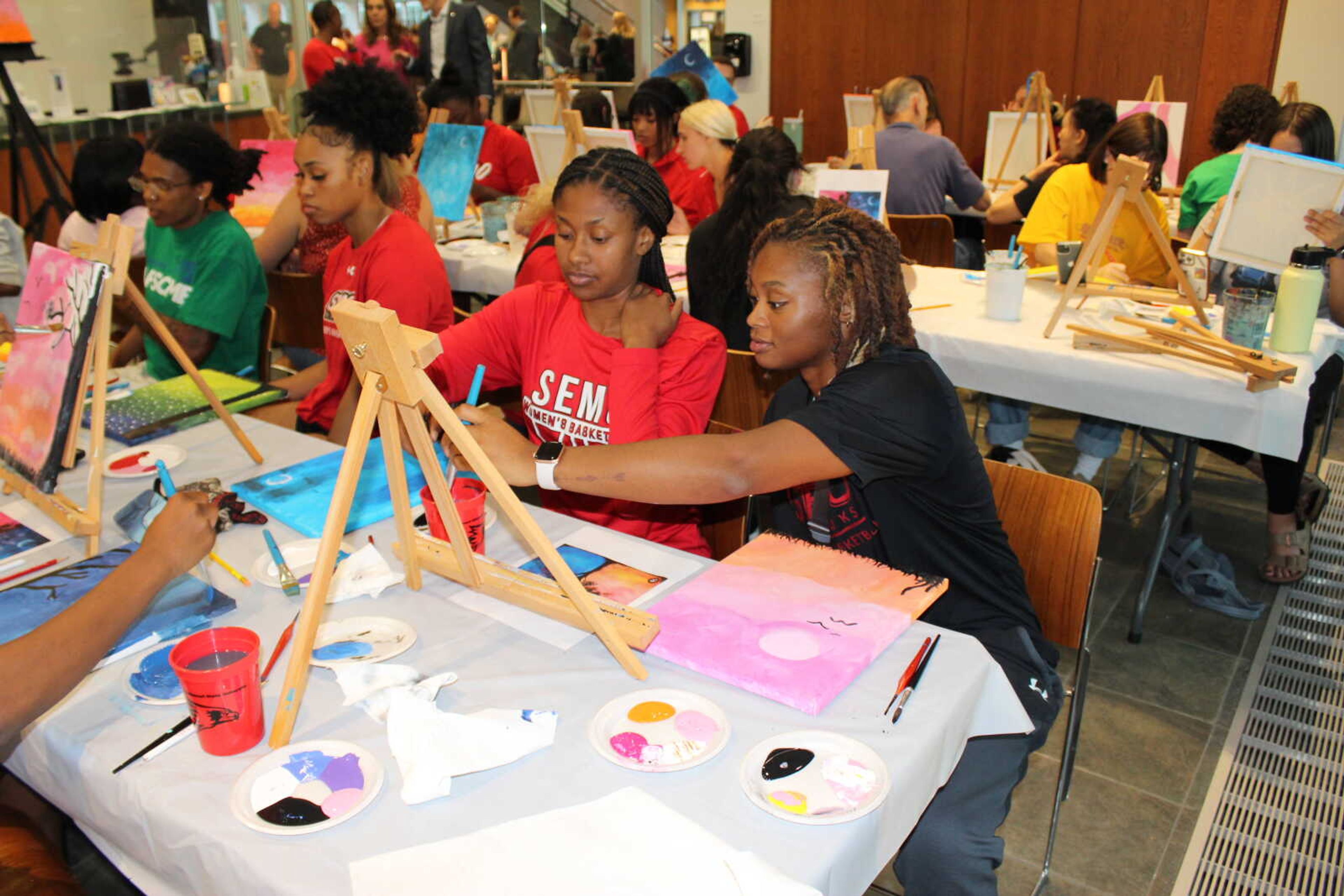Dr. Christopher Goeke sat down his cast for the Department of Music's presentation of two of Gian Carlo Menotti's one-act operas after a Thursday rehearsal and directed them to "put on their oxygen tanks" and "strap on their gloves," they were on an uphill climb toward opening night.
"Welcome to Mount Everest," he said.
Rehearsals for the department's annual staging of opera at Southeast Missouri State University began last semester, working two days a week for two hours. For the final week of preparation, they upped their schedule to six-hour rehearsals every day.
The process starts almost a year in advance. Shows are chosen with consideration of vocal talent, range and ability of students available in the following year.
"We looked into literature -- of course, we did Mozart last year, so we're thinking, 'Let's do something really different,' and Menotti is very different," Goeke said.
Menotti was a 20th century composer and won the Pulitzer Prize for opera in 1950 and 1955. The department's choices of "Amelia Goes to the Ball" and "Amahl and the Night Visitors" span across a 15-year period in Menotti's work. Goeke said "Amelia Goes to the Ball" was Menotti's first "mature work," composed around the same time he finished college. "Amahl and the Night Visitors," he noted, holds its strength in Menotti's added experience. There's a visible evolution of both character conveyance and compositional style between the two. It's not that one is any better, but rather it explains Menotti's progression as a composer and the result of different challenges presented to a vocalist.
Goeke said after choosing shows, his next step was "prep time" for him as a director before beginning cast rehearsals. He spent the summer learning the pieces and wrote his own translation of "Amelia Goes to the Ball" that will be projected on a screen above the stage during the performance.
"I did a complete translation of 'Amelia' because the translation that's in the book is not literal," Goeke said. "It's kind of poetic, and it doesn't really say what's in the Italian. Like this 'Silenzio screanzati' . . . I mean, he's cussing at them. That doesn't come across in the English translation that's in the book. Since I worked on the translation, I can tell them [the cast] that, 'Listen, he's insulting you right now. He's telling you 'shut up' and putting you in your place.'"
Goeke added that a cuss word wasn't the point, his translations focused on better representing the mood of the piece.
"Amelia Goes to the Ball" follows Italian socialite Amelia, who will stop at nothing to attend the first ball of the season. "Amahl and the Night Visitors," on the other hand, Goeke described as "more or less" a Christmas opera. He said it's a version of the story of the three wise men, or rather what might have happened if they had stopped at a house on their way to Bethlehem.
According to Goeke, each year offers different artistic challenges to both director and vocalists. Mozart's "The Magic Flute" was performed last spring, and though the ranges and stamina for a vocalist are the same, the discrepancy is evident from Menotti's compositions of the 20th century and Mozart's 18th.
"What's different is, the singer has to have an ear towards 20th century music, so that they can hear that melody and pick out that note out of no place . . . The aural skills are much more demanding in 20th century music than they are in Mozart's music," Goeke said.
Students must have just as good of a grasp on singing in Italian as they would in English. Goeke pointed out that they couldn't get an idea across, they couldn't tell a story if they didn't understand the language, too.
"It's more than just putting up a show because I really feel like we are helping the cast figure out what's it like to learn a part and to really invest yourself in the process," Goeke said. "What does it take? You know, 'I want to be an opera singer.' Sure, that's easy to say, but what's it really mean? Well, it means hours a day of practice so that they can learn the difficult notes and rhythms and train the muscles of their voice so that they can maintain the stamina and the tessitura, and then also bring it to life -- what's it mean?"
He explained that Mozart holds a more traditional opera pattern from Menotti.
"You have set pieces -- here's a song for this person, here's an ensemble for that person," he said. ". . . In this piece, it is continuous. There's no stopping and starting."
Goeke added that continuity was part of the beauty of a one-act opera.
"I really like doing one-act operas because you have a story that happens very quickly," he said. "In the space of an hour, you have a nice evolution of idea, you get to know characters, but it's not an all-night kind of thing."
He mentioned a long, all-night affair is the most classic stereotype of opera, but that's just what it is -- a stereotype.
"I challenge people to not make fun of opera until you've actually been to one," Goeke said. "And if they come to one of the operas here, I don't think they're going to walk out and say, 'Yeah, opera's just about fat ladies singing.' They're going to walk out and say, 'No, there's a story there. I get it. I see it was fun. It was funny.' There's touching moments. It's not long necessarily. It doesn't have to be boring because you can see exactly what's going on on the screen. So I challenge people to come, and if you want to make fun of it afterwards, you can make all the fun you want, but please give it a chance. Come check it out. That way you can see if the stereotypes are true or not."
"Amahl and the Night Visitors" and "Amelia Goes to the Ball" will be performed at 7:30 p.m. Jan. 23 and 3 p.m. Jan. 25 in the Donald C. Bedell Performance Hall. Admission is $3 for students with a Southeast student ID.
